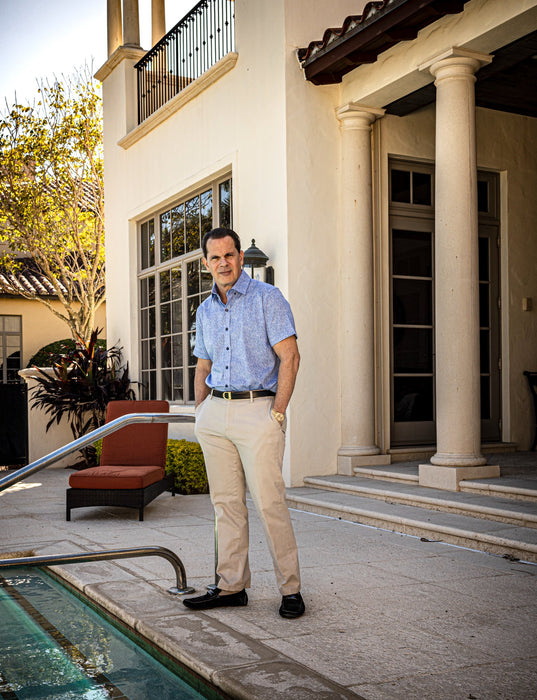4 things economic recessions have taught me

These are all things I’ve learned as I’ve gone about building my businesses through multiple recessions.
These are a few practical things that I’d suggest you consider as we enter into the tough economic times ahead.
The first one is simple: instead of worrying about everything that’s going on in this given moment, set some long-term goals.
I can remember when I started my first business – the cleaning business. We were well into a recession, but to be honest with you, back then, I didn’t even know it. So it didn’t phase me.
They say ignorance is bliss, right?
Instead of worrying about what might happen, I truly believed the reason I wasn't getting results was because I wasn't working hard enough... so I started working harder and I stuck to my long-term goals and it served me well.
So try not to allow what’s going on around you to take you down a rabbit hole of negative thinking. It won’t do you any good. Believe me.
The second lesson I learned is this: stay focused on what you know and do best, and try maximizing the value you already bring to the market.
Right now probably isn’t the best time to experiment with something new. I’d suggest that you focus on your strengths and the value you already bring to the table, and maximize that. Even if it is not "your passion," per se, focus on what you know will make the cash register ring.
What I’ve found is that whether you’re in a recession or not, the more you provide value and maximize the value you provide, the longer customers will stick around, and the more likely new customers will find a need for your service.
Right now everybody is thinking about where they can cut costs.
People are looking at the subscriptions they have that they don’t need, the services they’re investing in that they don’t really need to be investing in, and they’re really evaluating what’s actually giving them a return on their investment.
So when your customers cut costs, they’re going to prioritize where they’re getting the most value.
And if you’re someone who is providing that value to them, they are far less likely to stop doing business with you.
So be sure to keep going the extra mile for your customers, even if it feels like it’s not paying off now.
Lesson #3 is this: keep in contact with your customers. And don’t always make it about what you’re selling. Develop the relationships and connections you have. Instead of trying to sell someone something, ask them what you can help them with. That conversation can lead down so many paths…
You never know who someone else knows or who may be in need of your service.
They say we’re only 6 social connections away from everyone in the world. That should make you excited and ready to get out there and start networking!
And one final tip I’ll add is this: to truly THRIVE in this economic downturn, the best thing you can do is invest in improving your sales skills.
I’ve already mentioned maximizing your value. But if you cannot communicate your value to the marketplace, you're going to become irrelevant.
Selling at a higher level is the one thing that is going to make the difference between your business surviving or not... and maybe even thriving.
I like to think of it like this. You can’t save your way out of a recession, but you CAN sell yourself out.
In the coming weeks, I’m going to be sharing more strategies on thriving through the recession, as well as some sales strategies so you can up your game and keep your business running.
I believe in you!!




